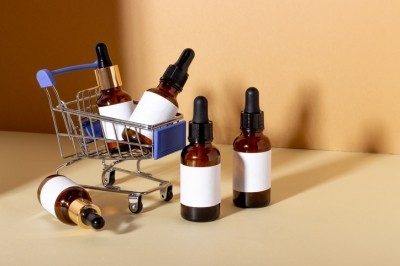Q&A: Bill Bookout on the animal supplement market, trends and regulations

Since the founding of the NASC in 2001, not only has the organization’s membership grown from the original 18 companies to nearly 300 suppliers, manufacturers and service providers, but a robust animal supplement market continues to expand as pet parents prioritize the health of their animal companions.
NutraIngredients-USA caught up with Bill Bookout who spoke about the relatively recession-proof and fast-follow industry, the increasing humanization pets and how current regulatory processes can work for or against protecting our animal loved-ones.
How is the animal health supplement market performing?
Bill Bookout: We estimate the current market for dogs and cats at about $2.6 billion in US consumer spending and about $800 to $900 million for horses total. Depending on who you talk to, you may get different answers or estimates, but if you define the market as nutritional and health products for dogs, cats and horses as we do, I think those numbers are pretty solid.
And the consumer spending level in the US growth has been pretty robust. One of the unintended consequences of Covid was that the industry on the dog and cat side expanded like 20%. We thought it was a temporary buyer-driven, panic-driven demand spike, but it turned out that it actually caused market expansion, and it appears that market expansion was sustainable.
The industry is a pretty stable industry, it is fairly recession proof, and I think that's true because in a lot of cases people will cut back on things for themselves before they cut back on things for their pets.
What categories, health issues and trends are in focus?
The animal supplement industry is a fast-follow industry, so for the most part, anything you see that's popular on the human side is also going to be popular on the animal side with some exceptions: joint products, anything for aging animals, calming products for separation anxiety/thunderstorms/fireworks, immune system products, probiotics for the proper metabolization of nutrients in the gastrointestinal tract, essential fatty acid products for healthy skin and coat.
One trend is the humanization of pets as people are thinking of their pets as extended family members. And I think that at the consumer level for our companion animals, we want to accomplish the same thing for our dogs and cats as we want to accomplish for ourselves – that is that we want to live a long, happy, healthy life to the maximum degree possible.
Now you want to be careful. People think generally recognized as safe (GRAS) for humans means it's okay for animals as well, and that is not true. GRAS is species specific. Safety assessments for emerging ingredients that are specific to the target species on animals are a must to first and foremost ensure the reasonable expectation of safety.
What regulatory issues and initiatives is the industry facing?
On the nutritional side, there are major regulatory labeling changes or updates in progress that will take place over the next five to seven years. That will change nutritional labeling on pet nutritional products – dog food, cat food and nutritional supplements – to be more closely aligned with human nutritional labeling, so it'll say “Pet Nutrition Facts”.
CBD is always an issue because there are potentially 50 different sets of rules and interpretations, and some states have taken a very hardline stand. Idaho, for example, has banned any hemp product, not only in animal food but also in animal health products, which I maintain are not under the regulatory authority or purview statutorily of the Department of Agriculture. I think that the state’s interpretation of the statute in Idaho is just simply wrong, and they have taken a stand that I believe is detrimental to animals.
Consumer demand is not going to go away. People are going to buy products from the Internet or human products and guess at what to do. That may in fact lead to negative health consequences more severe than if they would engage in reasonable, intelligent conversations about a responsible path forward that manages risks and creates responsible conduct on the part of the industry, rather than just “we’re not going to allow it”. I think that's just a very myopic and misguided approach.
When a regulatory person thinks the industry exists because of the regulator, that’s exactly incorrect. The regulators exist because the industry thrives.
Is there anything else you would like to add?
There are two things you can take to the bank: Companies that make claims that sound too good to be true, probably are, and cheap products are usually cheap for a reason.
There’s been a strong consolidation in the industry. My hope is that we would continue to differentiate the responsible suppliers from the opportunistic suppliers. And I think that that's naturally happening over the course of time and business. You know, the cream always rises to the top.
Our programs at the NASC show how a major industry segment can work cooperatively with regulatory agencies to achieve an outcome that's beneficial for all stakeholders, not least importantly the animals themselves.
Without the cooperation and participation of the regulatory agencies, both FDA as well as state regulators, we would not be where we are today in terms of the foundation and pathway that we've jointly established that I believe is a foundation for responsible conduct in the industry that's allowed the industry to grow.
Linked resource

Uncovering White Spaces – Probiotics for Pets
In this report, Lumina Intelligence examines the global online market development of probiotics for animals (predominantly pets), highlighting several opportunities for growth.

















